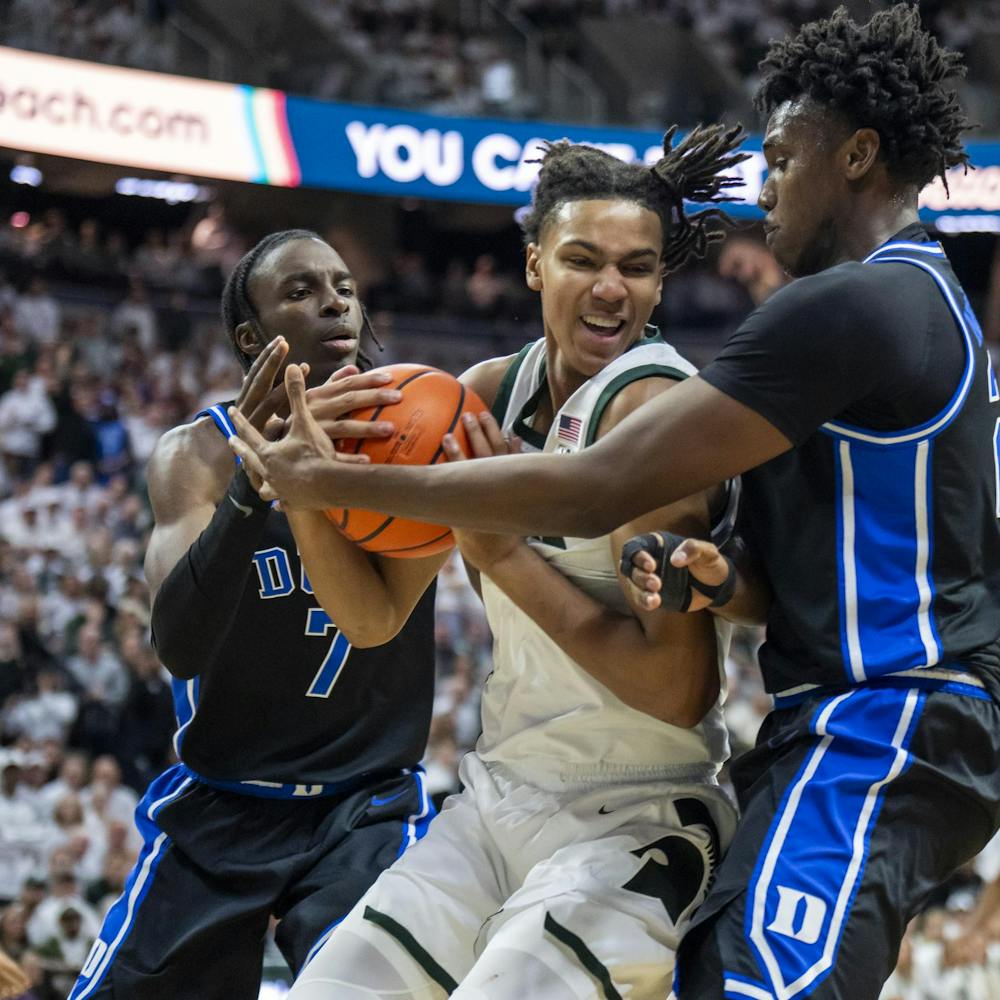CHICAGO - Minnesota Viking tackle Korey Stringer, a former star in the Big Ten while playing for Ohio State, died Wednesday after a grueling practice at the Vikings’ training camp the previous day.
“It’s every family’s and every coach’s nightmare,” Michigan head coach Lloyd Carr said at the 2001 Big Ten Kickoff Luncheon.
The 335-pound lineman developed symptoms of heat stroke, including weakness and rapid breathing, following the practice Tuesday held in temperatures in the low 90s and high humidity. He was unconscious when he arrived at Immanuel St. Joseph’s-Mayo Health System in Mankato, Minn., and had a temperature of more than 108.
His organs failed throughout the day and he never regained consciousness before dying at 1:50 a.m.
But this isn’t the first time the nightmare has occurred. An increasing number of families have endured the horror of receiving a call telling them their son has died while training for football.
In February, Florida State linebacker DeVaughn Darling collapsed and died after off-season workouts in Tallahassee. It was later revealed he had a heart defect.
And just 12 days ago, Eraste Autin, an incoming freshman running back at the University of Florida, suffered a massive heart attack after working out in the Gainesville heat and died six days after.
Both were 18 years old.
“It scares the heck out of me,” Minnesota Golden Gopher head coach Glen Mason said. “We take a lot of precautions at Minnesota and will continue to do so.
“I mean, I remember when I was growing up playing football in New Jersey and there was no water to be found anywhere on the field. It was a sign of weakness. We just popped a few salt tablets and kept going.”
While awareness and precautionary measures have improved since then, more and more high-profile young athletes are succumbing to the combination of size, heat and strenuous workouts.
Stringer reported to Vikings camp at around 340 pounds, which was a significant slim-down from his playing weight last season. But it’s still quite a struggle for a man his size to function under extremely warm conditions, said George Abela, director of MSU cardiology.
“Obviously, extra weight puts extra strain on the heart,” he said. “Everybody’s basic motor is basically the same, so it’s just an extra load the same motor is trying to carry.
“Imagine if you have a six-cylinder car. If you attach a trailer to it, it’s going to have to work harder to do the same job, and obviously, there’s always a breaking point.”
Abela said a rapid loss of fluids through perspiration can lead to an electrolyte imbalance and lowered blood pressure. If precautions aren’t taken, the lack of fluid volume can result in kidney failure and cardiac collapse.
High temperatures can further complicate matters by causing heat exhaustion or heat stroke, during which an athlete’s body temperature rises sharply. Abela said someone’s condition can deteriorate very rapidly once heat problems set in.
MSU head athletics trainer Jeff Monroe said the Spartan training staff tries to keep an extra-close eye on “the big guys” during practice to make sure no tragedies strike East Lansing.
“We watch the practices very closely and look for kids with dizziness or uncoordinated movements,” he said. “The warning signs are there, you just have to see them.
“The big kids have more risk - they get hotter quicker and can go quickly from heat exhaustion to heat stroke. We try to keep the kids hydrated and tell the coaches to keep an eye on them on hot days.”
MSU head coach Bobby Williams said he recognizes the tragic potential of overworking athletes and will take appropriate measures to keep practices safe for the Spartans.
“We’ve traditionally started our two-a-days with an afternoon practice and a night practice and we’ll continue to do that,” said Williams, who was at the Vikings training camp Monday. “The water breaks are going to have to be very important and there are going to have to be some times when we only go once a day, at least if this heat situation continues.”
ESPN college football analyst Kirk Herbstreit thinks teams will start going “softer” on their players now that tragedy has struck the NFL.
“People are starting to take notice of the problem,” said Herbstreit, who played with Stringer at Ohio State in 1992. “As an athlete, you’re brainwashed to ignore the pain and keep going from the time you’re in high school or even earlier. You’re just a robot out there.
“On a day like today, the last thing you want to do is go out there and run 20 200-yard sprints. But you do it because Michigan’s doing it and Nebraska’s doing it, so you have to do it too.”






